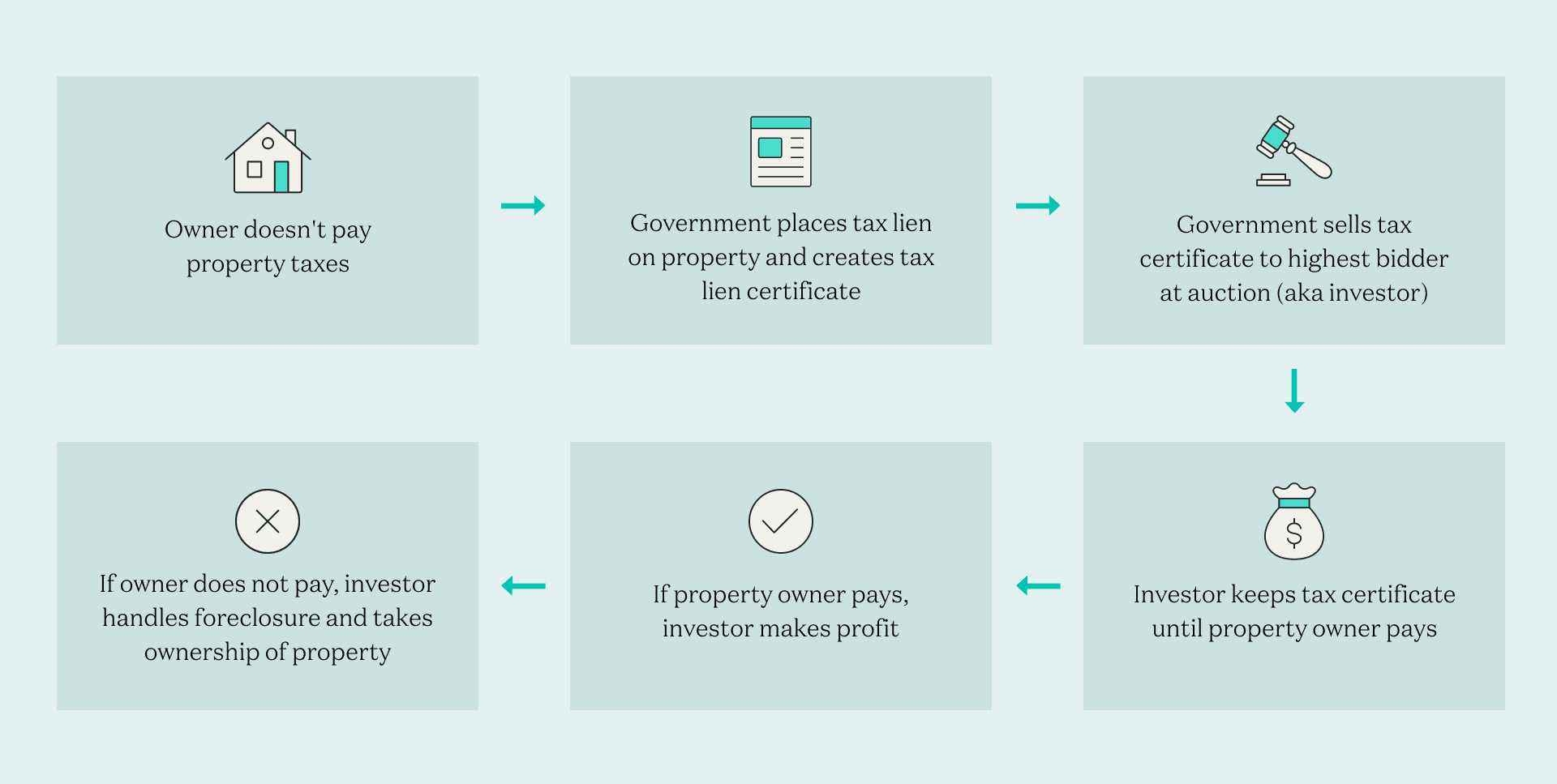Since the 1980s recession, real estate investing has been a popular option for anyone looking for big returns. And with today’s focus on building generational wealth, it’s no surprise that many people are still looking for ways to break into this type of investing. But buying property isn’t the only way to add real estate to your portfolio. Tax lien investing can bring in big returns, too — but it also comes with some big risks.
What is tax lien investing, exactly?
First, let’s talk about what a tax lien is: Property owners are required to pay property taxes either annually or semiannually. When they fall behind on those payments, the gov places a tax lien on the property. Think of it as a late payment warning.
Now, to the investing part: Once a tax lien is placed on a property, the gov creates a tax lien certificate — basically an invoice for the total amount due. It then holds an auction, where investors can bid on tax lien certificates. When an investor buys the certificate, they pay off the unpaid taxes. After that, it’s up to the property owner to pay the investor the delinquent tax payments — plus interest — by the expiration date.

Investors own the tax certificate until the property owner pays them in full, including the interest. That’s how it normally works, at least. If the property owner doesn’t cover all of the fees by the expiration date, things can get complicated and time-consuming. That’s because you’ll acquire the property as your own… which also means you’ll be responsible for the foreclosure process.
What are the pros of tax lien investing?
One perk of tax lien investing is that it can be a passive investment if you opt to use a real estate pro. In some cases, this means that there’s no need for you to attend auctions, or constantly search for properties. Plus, if you own the tax lien certificate for a while before the taxes are paid, the interest can add up pretty fast. Meaning big returns. No landlording or house flipping needed.
Are there any cons I should know about?
There are some restrictions on where you can invest in tax liens — only 29 states and DC allow it. Even if you’re in one of the states that allow private investors to bid on tax lien certificates, it’s not as easy as it sounds.
Tax lien investing requires a lot of research before the auction if you take it on alone. So it may not be the best for beginner investors. In some cases, property values may be lower than the taxes owed — which would mean no profit. You’ll also need to stay on top of deadlines, communicate with the property owner (if you win the auction), and handle the foreclosure process if the owner doesn’t pay taxes owed — which is rare, but possible.
How do I start to invest in tax liens?
Start with doing research to make sure you live in a tax lien state. Then, you can decide what type of property you’d like to hold a lien on. Are you more interested in houses, commercial buildings, or empty plots of land? Once you’ve made your decision, reach out to your city or county treasurer’s office to find out the details for tax lien sales in your area. If you’d prefer professional help, you can always find resources from the National Tax Lien Association.
theSkimm
Tax lien investments can be a good way to bring in real estate returns without owning property (in most cases). But like any investments, things can get risky. You may not need major capital, but keep in mind tax liens can mean a major investment of time.
Subscribe to Skimm Money
Your source for the biggest financial headlines and trends, and how they affect your wallet.
